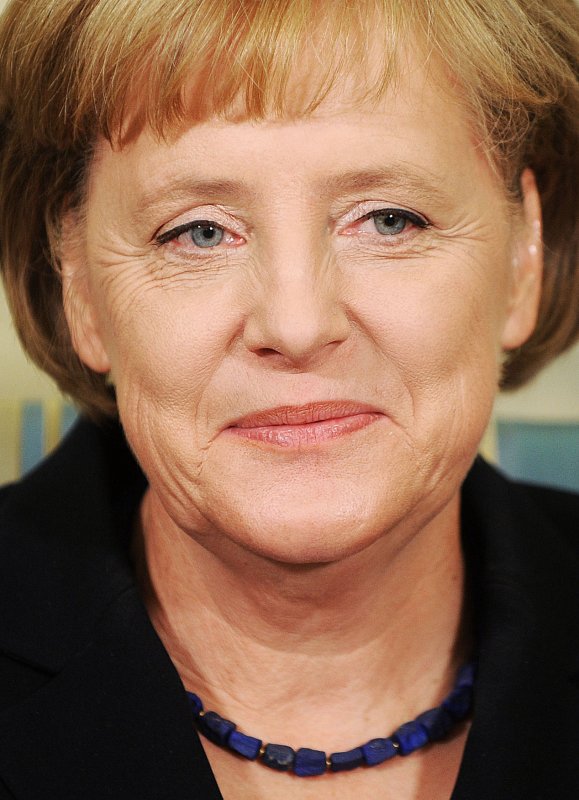German Chancellor Angela Merkel in the Oval Office of the White House on November 3, 2009 in Washington, DC. UPI/Olivier Douliery/Pool |
License Photo
BERLIN, April 15 (UPI) -- Germany will drop nuclear power as soon as possible, Chancellor Angela Merkel said Friday, in a major policy reversal that will alter the energy mix in Europe's largest economy.
The German government, backed by the governors of the 16 German states, will decide by mid-June how long the country's 17 nuclear power reactors are allowed to remain online, Merkel said. Berlin also will spell out what this means for the future German energy mix.
"We want to exit from nuclear power generation as soon as possible and make the transition to renewable energy sources faster," Merkel said Friday in Berlin after talks with the state governors.
Wind power generated on land and offshore will be one of the main pillars of Germany's new energy mix, Environment Minister Norbert Roettgen added.
Shutting down reactors earlier than planned would require greater efforts to increase the share of renewables, build new power lines and reduce overall energy consumption to ensure Germany would meet its climate protection targets, Merkel said. It also may involve building new coal- or gas-fired power stations to provide base-load capacity, Merkel added.
The meeting came on the heels of a series of hasty political decisions Berlin took in response to the Japanese nuclear crisis.
In March, at the height of the fallout in Japan, Merkel decided to temporarily shut down seven of Germany's oldest reactors to test their safety, adding they may not be restarted.
The move came as a complete surprise to many, as it meant a complete U-turn from Merkel's past policies.
Despite strong public opposition, Merkel last year decided to extend the running times of the German reactors until the mid-2030s, scrapping a 10-year-old decision taken by the Social Democrat/Greens government to phase out nuclear power in Germany by 2022.
Social Democrat politician Erwin Sellering, the state governor of Mecklenburg-West Pomerania, Friday called that decision a "big mistake."
"Let's make sure that the last nuclear reactor is shut down by 2022 at the latest," he said.
Merkel's decision came amid increasing resistance to nuclear power in Germany, where tens of thousands of people have demonstrated against the energy source over the past weeks.
In the March election in traditionally conservative Baden-Wuerttemberg, home to four reactors, the anti-nuclear Green Party doubled its result and is expected to lead the new government -- ousting Merkel's conservatives for the first time in six decades.
The latest turnaround is poised to alter the future look of Germany's energy mix, but it won't happen easily.
Merkel admitted the government had to boost efforts to expand Germany's aging power grid, which is seen unfit to transport large amounts of renewable power through the country.
Germany needs to spend at least $13 billion to build an estimated 2,240 miles of new transmission lines to integrate the fluctuating renewable electricity sources, public German energy think tank Dena said in November.
Grid expansion in Germany has been slow and tedious. Public opposition to new high-voltage transmission lines and a bureaucratic planning process that takes eight years on average are slowing the blazing of a trail into a new energy age.
Merkel said her government would try to draft legislation, to be unveiled in June, to support and speed up grid expansion.
"If you want to drop nuclear power quickly, then you had to begin yesterday to have a new power line ready in 2018," Merkel said. "That's why we need to hurry."















